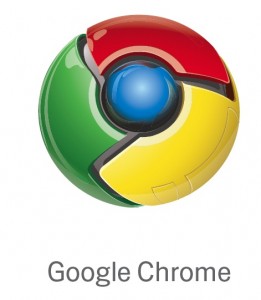
It had to come sooner or later. After doing really well for its Android OS for mobile phones, and not too bad for the Chrome Web browser (with 30 million users), Google unveiled its Chrome OS for Netbooks late yesterday to a flurry of excitement online.
The free OS is meant to make apps on the Net run more smoothly, when you are at a cafe, say, getting documents on your Gmail and Google Docs. A rich experience – something you get on a “bloated” install of Microsoft Office or indeed Open Office – is what Google has been trying to offer over the Net with its Chrome browser and now the Chrome OS.
The idea is to use the two pieces of software to run Web-based applications that were probably not able run as well or with as much bells and whistles as before. To understand this, just look to Google Docs and you’ll see why it’s a great alternative – but not a replacement – for software you install on your PC.
That’s also why the initial excitement over the Chrome OS launch has quickly followed with questions, as the media and analysts begin to pick apart what the most-loved tech company is doing to enter a marketplace dominated by the most-unloved of them all – Microsoft.
Questions remain, even as the Linux-based OS is scheduled for the second half of 2010. The best of them are pointed out by PC World.
For starters, Linux has not done very well on Netbooks, despite promising a smoother experience without Windows Vista’s lag or Windows XP’s endless security patches.
The reason’s simple – the Netbook-toting bunch includes users who want their Microsoft apps on their 9-inch screens. E-mail and Web browsing are fine, but if I’m editing an Excel or Powerpoint file for a client? It’s probably not going to happen on Google Chrome + Google Docs unless the documents only have really simple formatting.
Sure, Google will be able to summon up hardware vendors – already including Asus, Lenovo and Hewlett-Packard – like no other Linux vendor. But it faces the same question all Linux vendors have faced: compatibility.
Those wishing to break Microsoft’s stranglehold on PC software only need to take a look at Apple. Only when it made PC and Macs truly “compatible” – same USB mouse, same Microsoft Office, same Intel chip which runs both Windows and OS X – did Macs managed to take a chip off Microsoft’s dominance.
Unlike on the mobile phone, where the experience is more varied and personal, PCs are often required to be “standardised”. I’m an example. When I use Open Office to edit simple text files on my laptop for my daily work, it’s as good as Microsoft Office, which I also use on my desktop PC.
But the little kinks sometimes make you want to go out and buy a copy of the blasted Microsoft Office, like when I recently “highlighted” paragraphs in a document with Open Office’s highlighter tool and someone I sent the file to could not “un-highlight” it!
My point: don’t under-estimate the need for compatibility that users demand in a Microsoft-centric world.
Some day, people will be weaned from their diet of Microsoft products, say those against proprietary software. But this won’t come tomorrow, or at least until they see what the fuss is about Google’s Chrome OS next year.





i have tested chrome os both at home and at work, it does not seem to be better than ubuntu:,,
I have tried using Chrome OS in one of my desktop PC’s, the overall performance is above average to excellent `